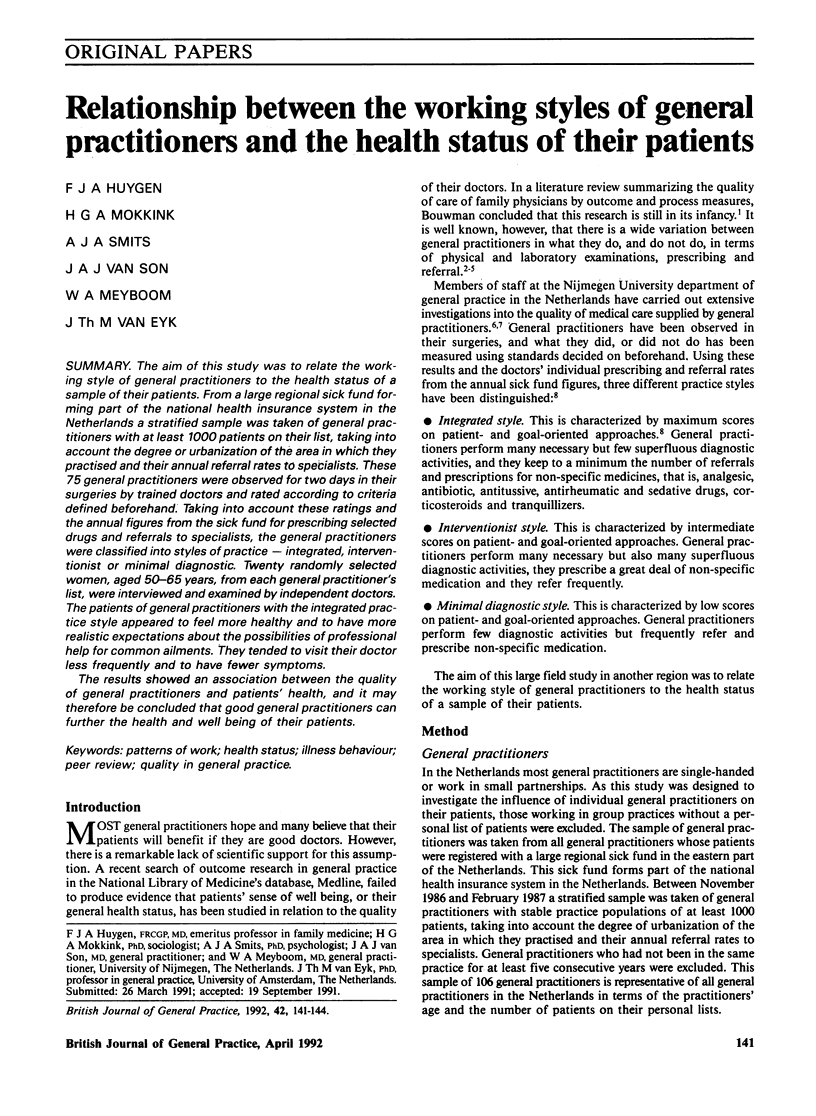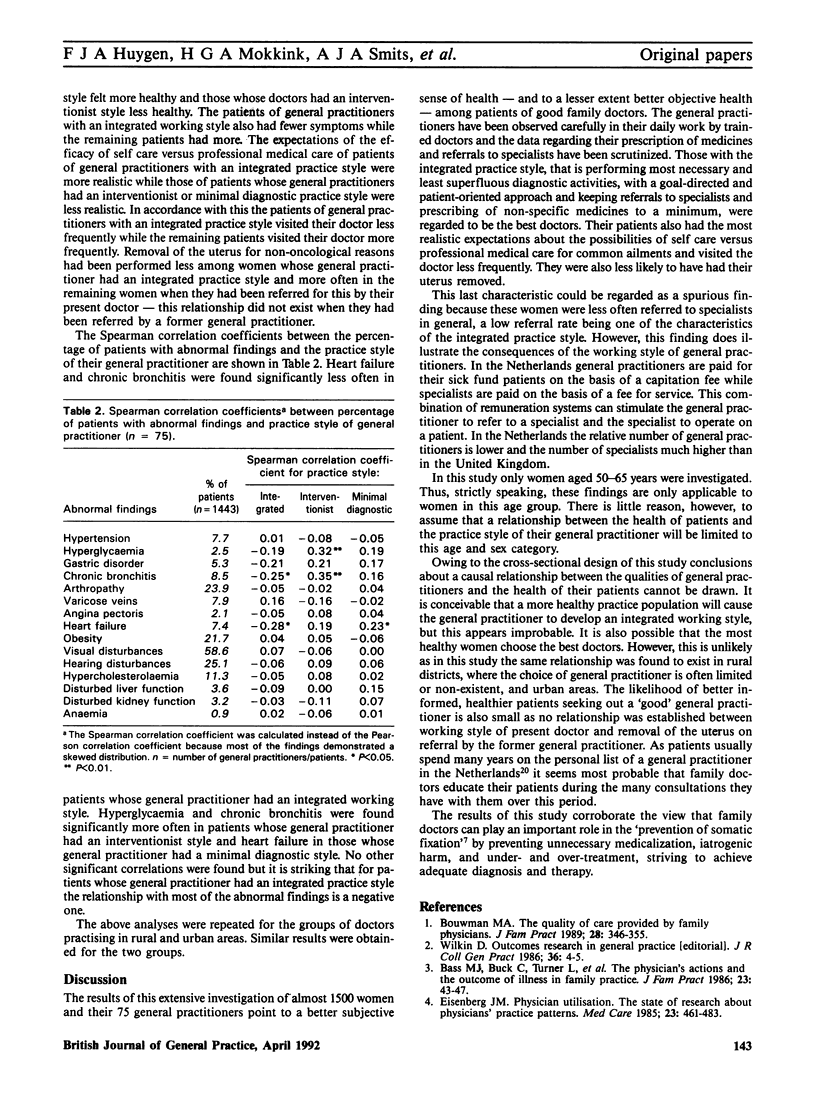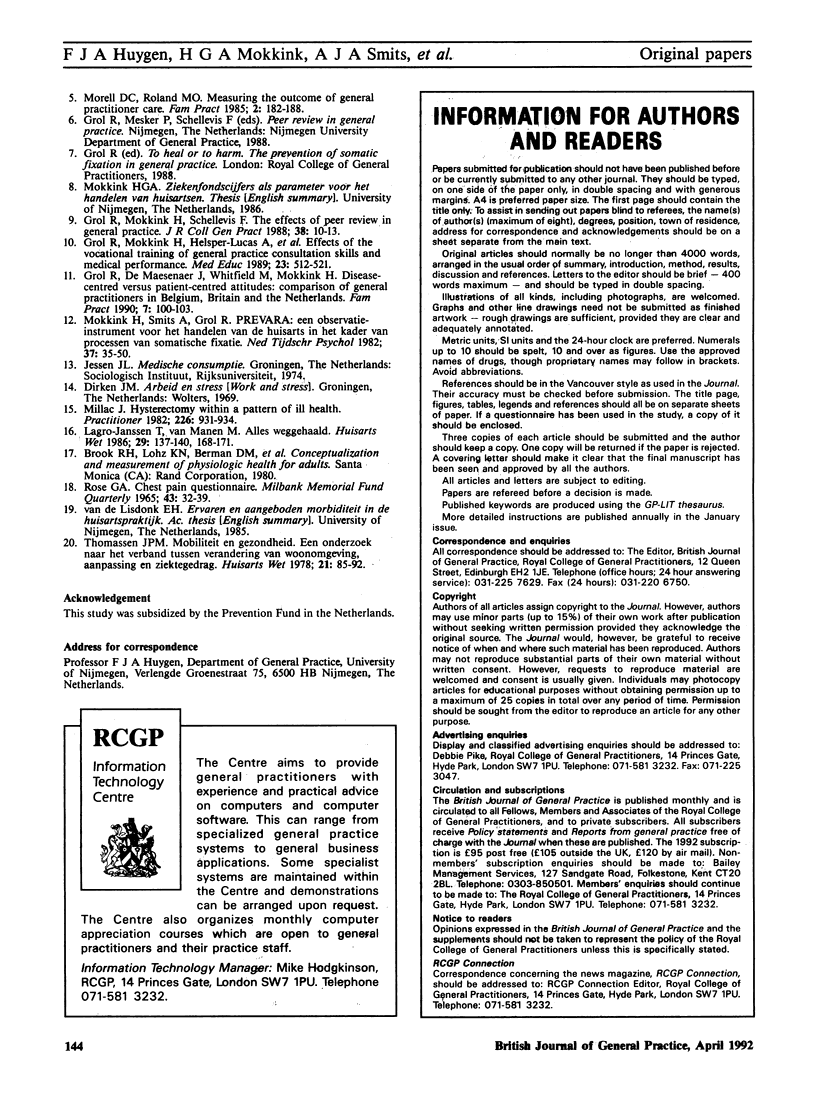Abstract
The aim of this study was to relate the working style of general practitioners to the health status of a sample of their patients. From a large regional sick fund forming part of the national health insurance system in the Netherlands a stratified sample was taken of general practitioners with at least 1000 patients on their list, taking into account the degree or urbanization of the area in which they practised and their annual referral rates to specialists. These 75 general practitioners were observed for two days in their surgeries by trained doctors and rated according to criteria defined beforehand. Taking into account these ratings and the annual figures from the sick fund for prescribing selected drugs and referrals to specialists, the general practitioners were classified into styles of practice - integrated, interventionist or minimal diagnostic. Twenty randomly selected women, aged 50-65 years, from each general practitioner's list, were interviewed and examined by independent doctors. The patients of general practitioners with the integrated practice style appeared to feel more healthy and to have more realistic expectations about the possibilities of professional help for common ailments. They tended to visit their doctor less frequently and to have fewer symptoms. The results showed an association between the quality of general practitioners and patients' health, and it may therefore be concluded that good general practitioners can further the health and well being of their patients.
Full text
PDF



Selected References
These references are in PubMed. This may not be the complete list of references from this article.
- Bass M. J., Buck C., Turner L., Dickie G., Pratt G., Robinson H. C. The physician's actions and the outcome of illness in family practice. J Fam Pract. 1986 Jul;23(1):43–47. [PubMed] [Google Scholar]
- Bowman M. A. The quality of care provided by family physicians. J Fam Pract. 1989 Mar;28(3):346–355. [PubMed] [Google Scholar]
- Eisenberg J. M. Physician utilization. The state of research about physicians' practice patterns. Med Care. 1985 May;23(5):461–483. [PubMed] [Google Scholar]
- Grol R., Mokkink H., Helsper-Lucas A., Tielens V., Bulte J. Effects of the vocational training of general practice consultation skills and medical performance. Med Educ. 1989 Nov;23(6):512–521. doi: 10.1111/j.1365-2923.1989.tb01577.x. [DOI] [PubMed] [Google Scholar]
- Grol R., Mokkink H., Schellevis F. The effects of peer review in general practice. J R Coll Gen Pract. 1988 Jan;38(306):10–13. [PMC free article] [PubMed] [Google Scholar]
- Grol R., de Maeseneer J., Whitfield M., Mokkink H. Disease-centred versus patient-centred attitudes: comparison of general practitioners in Belgium, Britain and The Netherlands. Fam Pract. 1990 Jun;7(2):100–103. doi: 10.1093/fampra/7.2.100. [DOI] [PubMed] [Google Scholar]
- Millac J. Hysterectomy within a pattern of ill health. Practitioner. 1982 May;226(1367):931–934. [PubMed] [Google Scholar]
- Morrell D. C., Roland M. O. Measuring the outcome of general practitioner care. Fam Pract. 1985 Sep;2(3):182–188. doi: 10.1093/fampra/2.3.182. [DOI] [PubMed] [Google Scholar]
- ROSE G. A. ISCHEMIC HEART DISEASE. CHEST PAIN QUESTIONNAIRE. Milbank Mem Fund Q. 1965 Apr;43:32–39. [PubMed] [Google Scholar]
- Wilkin D. Outcomes research in general practice. J R Coll Gen Pract. 1986 Jan;36(282):4–5. [PMC free article] [PubMed] [Google Scholar]


